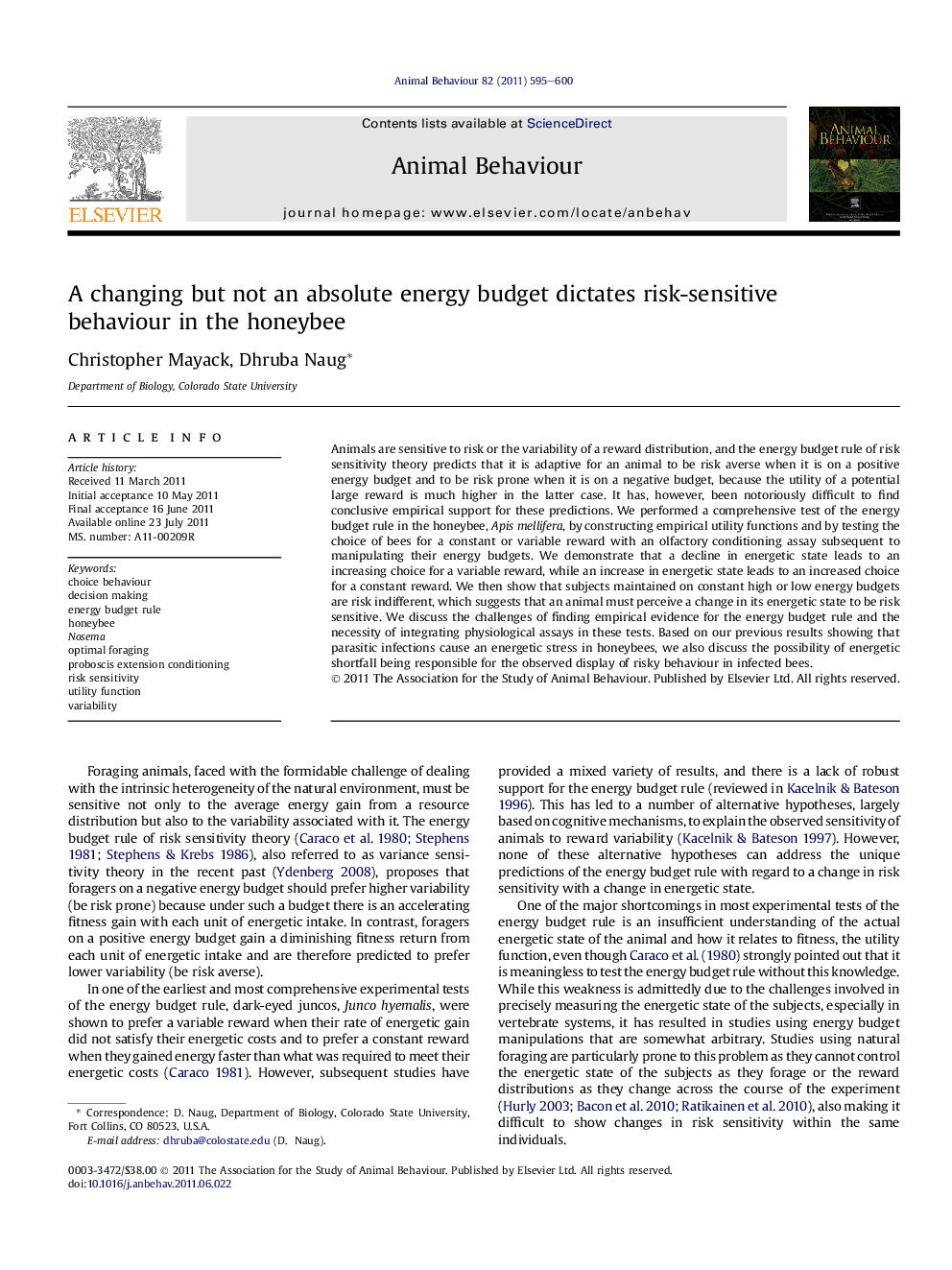| کد مقاله | کد نشریه | سال انتشار | مقاله انگلیسی | نسخه تمام متن |
|---|---|---|---|---|
| 2416975 | 1104303 | 2011 | 6 صفحه PDF | دانلود رایگان |
عنوان انگلیسی مقاله ISI
A changing but not an absolute energy budget dictates risk-sensitive behaviour in the honeybee
دانلود مقاله + سفارش ترجمه
دانلود مقاله ISI انگلیسی
رایگان برای ایرانیان
کلمات کلیدی
موضوعات مرتبط
علوم زیستی و بیوفناوری
علوم کشاورزی و بیولوژیک
علوم دامی و جانورشناسی
پیش نمایش صفحه اول مقاله

چکیده انگلیسی
Animals are sensitive to risk or the variability of a reward distribution, and the energy budget rule of risk sensitivity theory predicts that it is adaptive for an animal to be risk averse when it is on a positive energy budget and to be risk prone when it is on a negative budget, because the utility of a potential large reward is much higher in the latter case. It has, however, been notoriously difficult to find conclusive empirical support for these predictions. We performed a comprehensive test of the energy budget rule in the honeybee, Apis mellifera, by constructing empirical utility functions and by testing the choice of bees for a constant or variable reward with an olfactory conditioning assay subsequent to manipulating their energy budgets. We demonstrate that a decline in energetic state leads to an increasing choice for a variable reward, while an increase in energetic state leads to an increased choice for a constant reward. We then show that subjects maintained on constant high or low energy budgets are risk indifferent, which suggests that an animal must perceive a change in its energetic state to be risk sensitive. We discuss the challenges of finding empirical evidence for the energy budget rule and the necessity of integrating physiological assays in these tests. Based on our previous results showing that parasitic infections cause an energetic stress in honeybees, we also discuss the possibility of energetic shortfall being responsible for the observed display of risky behaviour in infected bees.
ناشر
Database: Elsevier - ScienceDirect (ساینس دایرکت)
Journal: Animal Behaviour - Volume 82, Issue 3, 1 September 2011, Pages 595-600
Journal: Animal Behaviour - Volume 82, Issue 3, 1 September 2011, Pages 595-600
نویسندگان
Christopher Mayack, Dhruba Naug,